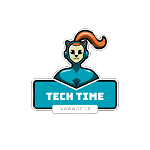Introduction
In the short-paced and ever-evolving panorama of digital advertising, the position of digital companies has become increasingly vital for agencies aiming to thrive online.
Digital Agency Models
Digital organizations serve as strategic companions, leveraging their expertise in diverse sides of online advertising to assist clients in navigating the complicated digital environment.
Comprehensive Solutions:
The traditional complete-service digital business model corresponds to a one-stop shop, presenting a wide array of offerings that overlay digital advertising. From website improvement and layout to search engine optimization (search engine optimization), content creation, social media management, and online advertising, these businesses propose to offer complete solutions under one roof.
Cross-Functional Teams:
Full-carrier agencies typically boast cross-purposeful groups, encompassing professionals in numerous digital disciplines. Web builders, graphic designers, SEO experts, content creators, and social media managers collaborate to deliver included campaigns that align with clients’ overarching advertising and marketing objectives.
Advantages:
Clients benefit from the comfort of having all their digital desires addressed with the aid of a single organization. The holistic technique guarantees consistency in branding, messaging, and typical strategy throughout extraordinary digital channels.
Specialized Digital Agency Models
SEO Agencies:
Specialized organizations focus solely on search engine optimization (optimization) to enhance a consumer’s online visibility engine scores. Seeking groups appoint strategies, including keyword optimization, hyperlink construction, and content advent, to enhance a website’s search engine overall performance.
Social Media Agencies:
Social media organizations specialize in crafting and executing social media strategies. From content material creation and community control to paid marketing on systems like Facebook, Instagram, and Twitter, these companies help clients construct and preserve a solid social media presence.
Performance Marketing Agency Model
Data-Driven Strategies:
Performance advertising businesses prioritize measurable effects and statistics-pushed techniques. They leverage digital channels for particular focus, tune key performance signs (KPIs), and optimize campaigns in real-time, primarily based on the performance data.
Boutique and Niche Digital Agencies
Boutique Agencies:
Boutique digital groups in Digital Agency Models are smaller corporations focusing on unique niches or industries. These agencies frequently emphasize personalized careers, deep industry understanding, and a tailored approach to meet their customers’ specific demanding situations and possibilities.
Niche Agencies:
Niche agencies know about a particular digital advertising and marketing issue or cater to a specific industry. For instance, a company might entirely paint with e-commerce clients or specialize in video advertising. Niche agencies deliver in-depth knowledge and centred answers to their selected cognizance vicinity.
In-House Agency Model
Integrated Internal Teams:
Some large corporations choose an in-residence organization model, where digital advertising capabilities are brought in-residence rather than outsourced to outside corporations. This model entails building and dealing with internal groups dedicated to various elements of digital marketing.
Brand Alignment:
In-residence groups have inherent information about the logo, its values, and its desires, ensuring alignment between advertising efforts and the general corporate method. This version permits more seamless collaboration among marketing groups and other departments in the business.
Hybrid Agency Model
A blend of Specialization and Full-Service:
The hybrid company model combines elements of specialization and complete-provider skills. These agencies provide a central set of complete offerings and have specialized teams or companions to cope with precise client desires.
Adaptability:
Hybrid agencies show adaptability and flexibility, permitting them to tailor their offerings based on customer necessities. This version is especially effective for clients seeking a mix of standard digital advertising help and specialized understanding.
Collaborative Partnerships:
Hybrid agencies regularly collaborate with outside experts or niche businesses to supplement their in-house capabilities. This collaborative technique guarantees a nicely rounded and customized solution for clients.
Agile and Project-Based Agency Models
Agile Agencies:
Agile corporations perform with flexibility and responsiveness, adapting quickly to changing client desires and market dynamics. They regularly paint on short-term projects, allowing customers to test strategies, refine approaches, and scale based totally on consequences.
Project-Based Agencies:
Project-based corporations take on unique assignments or campaigns rather than offering ongoing, long-term offerings. This version permits clients to interact with organizations for specialized projects without committing to good-sized, ongoing contracts.
Emerging Trends in Digital Agency Models
Artificial Intelligence (AI) Integration:
Digital companies are increasingly incorporating AI equipment and technologies into their techniques. Ai Automation data-driven analytics, chatbots, and personalization engines enhance the performance and effectiveness of digital campaigns.
Digital and Augmented Reality Expertise:
With the growing prominence of digital and augmented truth, digital corporations are growing understanding in developing immersive studies. Agencies specializing in AR and VR answers are getting treasured partners for manufacturers seeking to leverage these technologies.
Emphasis on Sustainability and Ethical Marketing:
There is a rising emphasis on sustainability and moral advertising practices. Digital organizations align with manufacturers, prioritizing environmental and social duty, reflecting a growing consciousness and demand for ethical business practices.
Conclusion
The Digital Agency Models are rich and varied, presenting customers with many fashions based on their desires and objectives. Whether choosing the complete services of a complete-service business, the specialized information of niche corporations, or the flexibility of undertaking-based collaborations, groups can leverage these corporations’ digital understanding to navigate the complexities of the online world.
As the digital panorama continues to adapt, businesses that live abreast of emerging developments and technology will play a pivotal role in shaping the future of digital advertising, supporting manufacturers to connect with their audiences in innovative and impactful ways.

